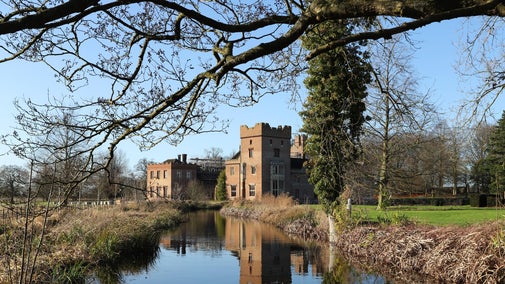August 2024
Work begins
It was revealed that original eighteenth-century design elements and desired early nineteenth-century influences got lost or hidden due to later changes in the garden's evolution.

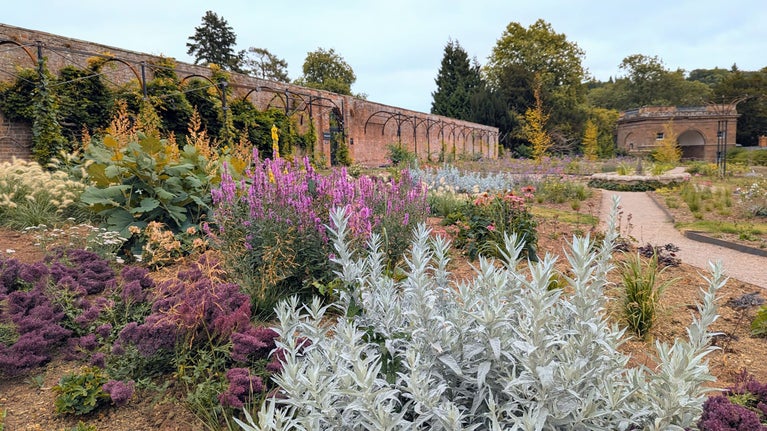
A new flower garden has opened at Berrington Hall to bring surprise, theatre and delight to this Georgian estate - the final work of Lancelot ‘Capability’ Brown.
In 2024, after a decade of planning and with funding from National Trust supporters and Blue Diamond Garden Centres, work began to transform what was once a neatly mown lawn into a vibrant space full of colour and buzzing with pollinators. With over 53,000 plants and bulbs planted, the garden is quickly becoming a haven for wildlife and people alike.
Set within the final landscape design of the renowned 18th-century landscape architect 'Capability' Brown, this project has brought together volunteers, staff, community groups, and visitors—each feeling part of this new chapter in Berrington Hall's story.
Still a young garden, it’s already bursting with flowers. And with fully accessible paths throughout, everyone is welcome to explore this evolving space and watch it flourish.
Careful consideration was crucial to enabling change within the sensitive Grade II* Registered Park and Garden. The planning incorporated archaeological research and specialist advice to fully grasp the original designs of the gardens. It was revealed that original eighteenth-century design elements and desired early nineteenth-century influences got lost or hidden due to later changes in the garden's evolution. These findings, coupled with Brown's designs, actively guided us as we planned the new flower garden and visitor journey through the pleasure grounds.
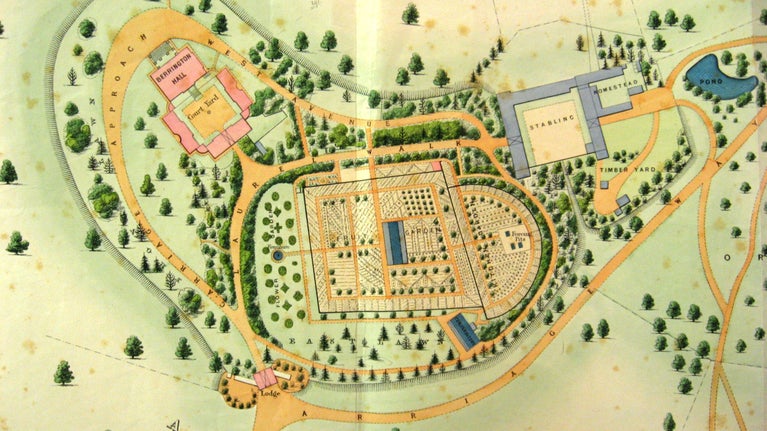
Georgian pleasure grounds, like those ‘Capability’ Brown and Thomas Harley, Berrington Hall’s first owner, created, were intended to surprise and delight guests. The new flower garden will capture the essence of this. Beds filled with a mix of over 53,000 new flowering plants and bulbs, will bring more flowers than ever before to Berrington and give almost year-round interest. We’ve creatively incorporated 14 of the existing 26 much-loved yew balls. The move and the driest spring in many years caused some shock, so they’re looking a little brown—but they are showing signs of life, and with careful management, we’re hopeful 2026 will be a better year for them. Three new wisteria ‘umbrellas’ will echo the Georgian love of spectacle and the historic Wisteria Walk will be restored and extended to run along the southern length of the walled garden, for magnificent spring displays.
The new accessible path network has been completed. It’s closer to ‘Capability’ Brown’s original layout and will enable more people to have a better experience around the gardens. As the flowers, shrubs and trees establish, the new paths will ensure a grand entrance into the pleasure grounds. They will create a journey to conceal and reveal, surprising and delighting visitors as they move through the garden.
August 2024
It was revealed that original eighteenth-century design elements and desired early nineteenth-century influences got lost or hidden due to later changes in the garden's evolution.

As the garden grows, we invite you to step into the shoes of a garden designer at Berrington Hall. You’ll find information panels explaining the work taking place and asking you to think about how you might design a garden and perhaps take inspiration from what’s happening. There’s also a garden surveyor's office set up in the stables, filled with books and equipment that a garden surveyor might use when planning their latest creation. We invite you to explore this space and reflect on gardens, how you enjoy them and what garden you might create.
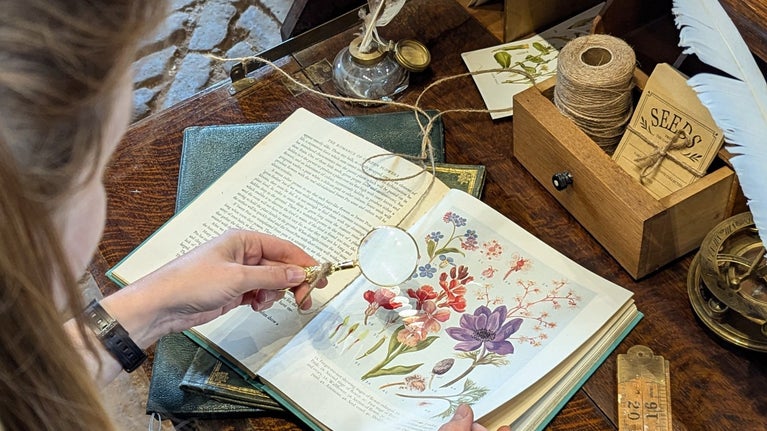
This project has been made possible through the generous funding of Blue Diamond Garden Centres and National Trust supporters.
The Curve is a very special of Berrington's garden. Designed as part of Capability Brown's final landscape, Berrington's curved walled garden is the only one of its kind globally that has survived the centuries almost entirely intact. In recent years, work has taken place to conserve and protect this unique space, removing the 20th century farm buildings and making necessary repairs to the walls and the Carpenters Workshop. Once this work was completed, we began a Research and Development project to explore new possibilities for The Curve, delving into the many ways people historically engaged with outdoor spaces and how that relationship continues to evolve.

Find out more about Blue Diamond Garden Centres collaboration with the National Trust.
Uncover 230 years of history at Berrington Hall. It started as an escape to the country for a city banker and was ‘Capability’ Brown’s final landscape project.

Explore Lancelot 'Capability' Brown's vision of stunning views and winding walking trails through acres of parkland at Berrington.
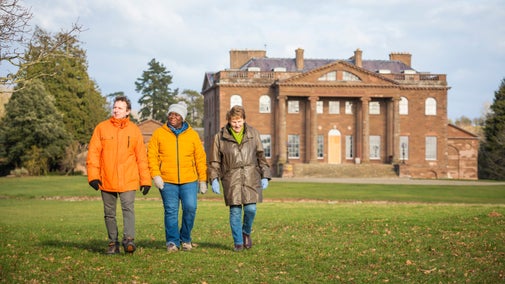
Berrington has an internationally significant garden. It’s the final landscape garden project completed by Lancelot ‘Capability’ Brown with a walled garden, traditional orchard, productive kitchen garden, curved garden and a brand new flower garden.
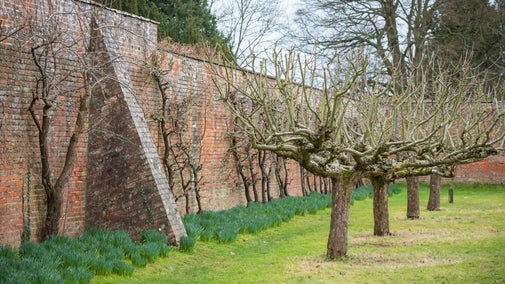
We believe that nature, beauty and history are for everyone. That’s why we’re supporting wildlife, protecting historic sites and more. Find out about our work.
